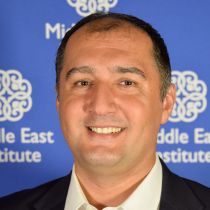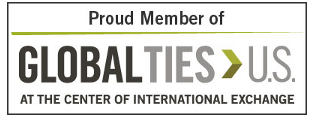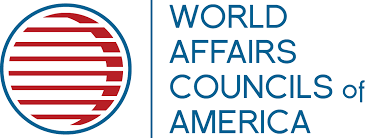Iran's Role in the Israel-Hamas War |
As the war continues to rage between Israel and Hamas, with civilian populations caught in the middle, the World Affairs Council of New Hampshire hosted a conversation with Alex Vatanka of the Middle East Institute to explore the role that Iran has, and continues to play in this conflict. From supporting the "Axis of Resistance" to more direct action, Iran and Israel have experienced an adversarial relationship since the Iranian Revolution in 1979.
This conversation works to highlight how Iran is approaching the most current wave of violence, looking to balance their support of Hamas against a desire to stay out of a direct conflict with the United States. While it is good news to hear that Alex views the likelihood of a spillover effect as low, that does not minimize the destructive nature of the Hamas attack of October 7th and Israel's ongoing response. This conversation dives deeply into the provocative, yet restrained, actions of the Iranian Republic, while exploring what the future can and may bring.
This interview was recorded on Friday, December 22, 2023.
More Information
You can read Alex's Report from October 19th about Iran's Calculations in the Israel-Hamas War HERE.

Alex Vatanka is the founding Director of the Iran Program at the Middle East Institute. He specializes in Middle Eastern regional security affairs with a particular focus on Iran. He was formerly a Senior Analyst at Jane’s Information Group in London. Alex is also a Senior Fellow in Middle East Studies at the US Air Force Special Operations School (USAFSOS) at Hurlburt Field and teaches as an Adjunct Professor at DISAS at Wright-Patterson Air Force Base. He has testified before the US Congress and lectured widely for both governmental and commercial audiences, including the US Departments of State and Defense, US intelligence agencies, and a list of international corporations.
Born in Tehran, he holds a BA in Political Science (Sheffield University, UK), and an MA in International Relations (Essex University, UK), and is fluent in Farsi and Danish. He is the author of two books: The Battle of the Ayatollahs in Iran: The United States, Foreign Policy and Political Rivalry Since 1979 (2021) and Iran and Pakistan: Security, Diplomacy, and American Influence (2015).
He has also written chapters for a number of books, including Authoritarianism Goes Global (2016); Handbook on Contemporary Pakistan (2017); Russia in the Middle East (2018), Winning the Battle, Losing the War: Addressing the Drivers Fueling Armed Non-state Actors and Extremist Groups (2020); Global, Regional and Local Dynamics in the Yemen Crisis (2020); Routledge Handbook of Counterterrorism and Irregular Warfare Operations (2021); and Understanding New Proxy Wars (2022). He is presently working on his third book, Iran’s Arab Strategy: Defending the Homeland or Exporting Khomeinism?

Founded in 1946, the Middle East Institute is the oldest Washington-based institution dedicated solely to the study of the Middle East. It is a non-partisan think tank providing expert policy analysis, educational and professional development services, and a hub for engaging with the region's arts and culture. Their mission is to increase knowledge of the Middle East among citizens of the United States and to promote a better understanding between the people of these two areas.
![]()



